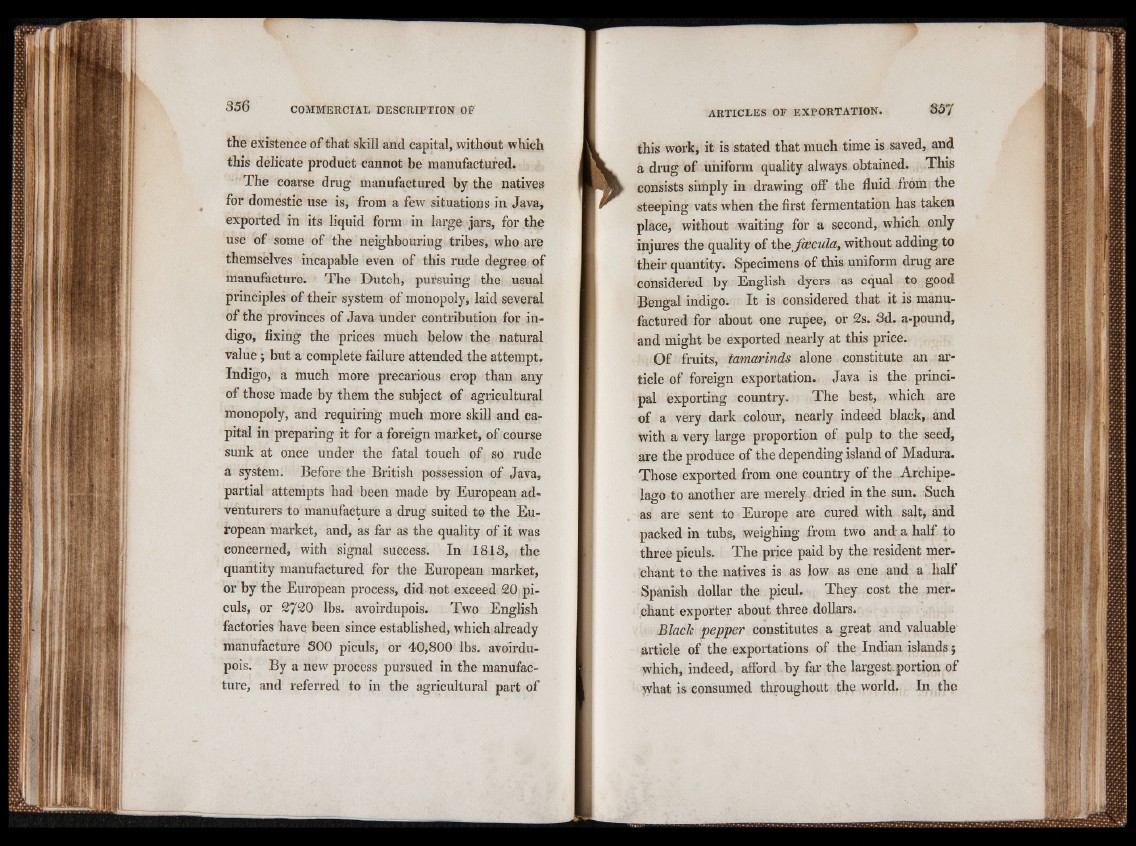
the existence of that skill and capital, without which
this delicate product cannot be manufactured.
The coarse drug manufactured by the natives
for domestic use is, from a few situations in Java,
exported in its liquid form in large jars, fpr the
use of some of the neighbouring tribes, who are
themselves incapable even of this rude degree of
manufacture. The Dutch, pursuing the usual
principles of their system of monopoly, laid several
of the provinces of Java under contribution for indigo,
fixing the prices much below the natural
value j but a complete failure attended the attempt.
Indigo, a much more precarious crop than any
of those made by them the subject of agricultural
monopoly, and requiring much more skill and capital
in preparing it for a foreign market, of course
sunk at once under the fatal touch of so rude
a system. Before the British possession of Java,
partial attempts had been made by European adventurers
to manufacture a drug suited to the European
market, and, as far as the quality of it was
concerned, with signal success. In 1813, the
quantity manufactured for the European market,
or by the European process, did not exceed 20 piculs,
or 2720 lbs. avoirdupois. Two English
factories have been since established, which already
manufacture 300 piculs, or 40,800 lhs. avoirdupois,
By a new process pursued in the manufacture,
and referred to in the agricultural part of
this work, it is stated that much time is saved, and
a drug of uniform quality always obtained. , This
consists simply in drawing off the fluid from the
steeping vats when the first fermentation has taken
place, without waiting for a second,-which only
injures the quality of the Jcecula, without adding to
their quantity. Specimens of this uniform drug are
considered by English dyers as equal to good
Bengal indigo. It is considered that it is manufactured
for about one rupee, or 2s. 3d. a-pound,
and might be exported nearly at this price.
Of fruits, tamarinds alone constitute an article
of foreign exportation. Java is the principal
exporting country. The best, which are
of a very dark colour, nearly indeed black, and
with a very large proportion of pulp to the seed,
are the produce of the depending island of Madura.
Those exported from one country of the Archipelago
to another are merely-dried in the sun. Such
as are sent to Europe are cured with salt, and
packed in tubs, weighing from two and- a half to
three piculs. The price paid by the resident merchant
to the natives is as low as one and a half
Spanish dollar the picul. They cost the merchant
exporter about three dollars.
Black pepper constitutes a great and valuable
article of the exportations of the Indian islands;
which, indeed, afford - by far the largest, portion of
what is consumed throughout the world. In the